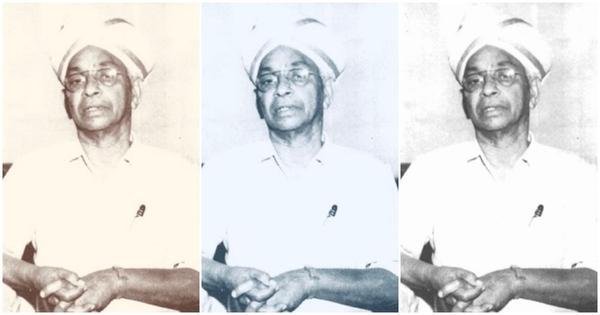The Unusual Deportation of Pandurangi Kodanda Rao
An Indian Activist’s Encounter with French Authorities

An Unexpected Detention
On May 10, 1937, Pandurangi Kodanda Rao, an Indian social activist and follower of Mahatma Gandhi, was detained by a French policeman while crossing a river in present-day Cambodia. Rao was en route to Saigon but was taken directly to the Police Office in Phnom Penh, as the police had orders to forbid his entry.
Questioning the Activist
An inspector who spoke good English questioned Rao on behalf of senior French officials in Phnom Penh. They were curious about the organization Rao worked for: the Servants Society of India.
A World Tour with Minimal Obstacles
Rao’s encounter with the French authorities was unusual, as he had previously traveled to several countries, including the United States and Australia, without any issues. Even the British authorities in India allowed Rao’s world tour, as long as he avoided political subjects in his talks and interactions.
The Servants Society of India
Born in Visakhapatnam in 1889, Rao became interested in social work during his student days. In 1922, he joined the Servants Society of India, which was founded by social reformer Gopal Krishna Gokhale in 1905. The society aimed to promote education, advance social justice and equality, and encourage civic engagement.
Rao’s Roles and Accomplishments
Rao served in various roles within the society for over 36 years. In the 1930s, he accompanied educator and independence activist VS Srinivasa Sastri to the Round Table Conferences in Britain. In the spring of 1937, Rao embarked on a world tour, which took him to South East Asia, where he was welcomed in most countries.
Welcomed in South East Asia
Rao was welcomed by the Dutch colonial administrators in what is now Indonesia, as well as members of the Indian diaspora living there. He traveled around Java, giving lectures on Eastern and Western civilizations. Visits to other parts of the region, including Penang and Bangkok, also went smoothly.
French Distrust
However, Rao’s expected welcome in Indochina did not materialize. Despite presenting two letters, one from the British Consul General in Saigon and the other from the director of the Central Tourist Bureau in Saigon, Rao was still detained. The order to deport him came directly from Hanoi, as the authorities were suspicious of his motives.
Deportation and Communication
The police in Phnom Penh refused to give a reason for Rao’s deportation, so he insisted on a written order. Following the order, Rao sent a telegram to the British Consul General saying, “Under instructions from Hanoi, local police ordered my deportation. I am taking the tomorrow morning train en route Bangkok. Please inform Indian friends.”
British Enquiry
The Secretary of State in London investigated Rao’s deportation and requested the Consul General in Saigon, JD Hogg, to clarify the situation. Hogg, who was critical of Mahatma Gandhi, said that while he had received letters and a telegram from Rao, the authorities in India failed to inform him about the visit, as was the practice with important people.
Ajay Kamalakaran is a writer based primarily in Mumbai. His Twitter handle is @ajaykamalakaran.



